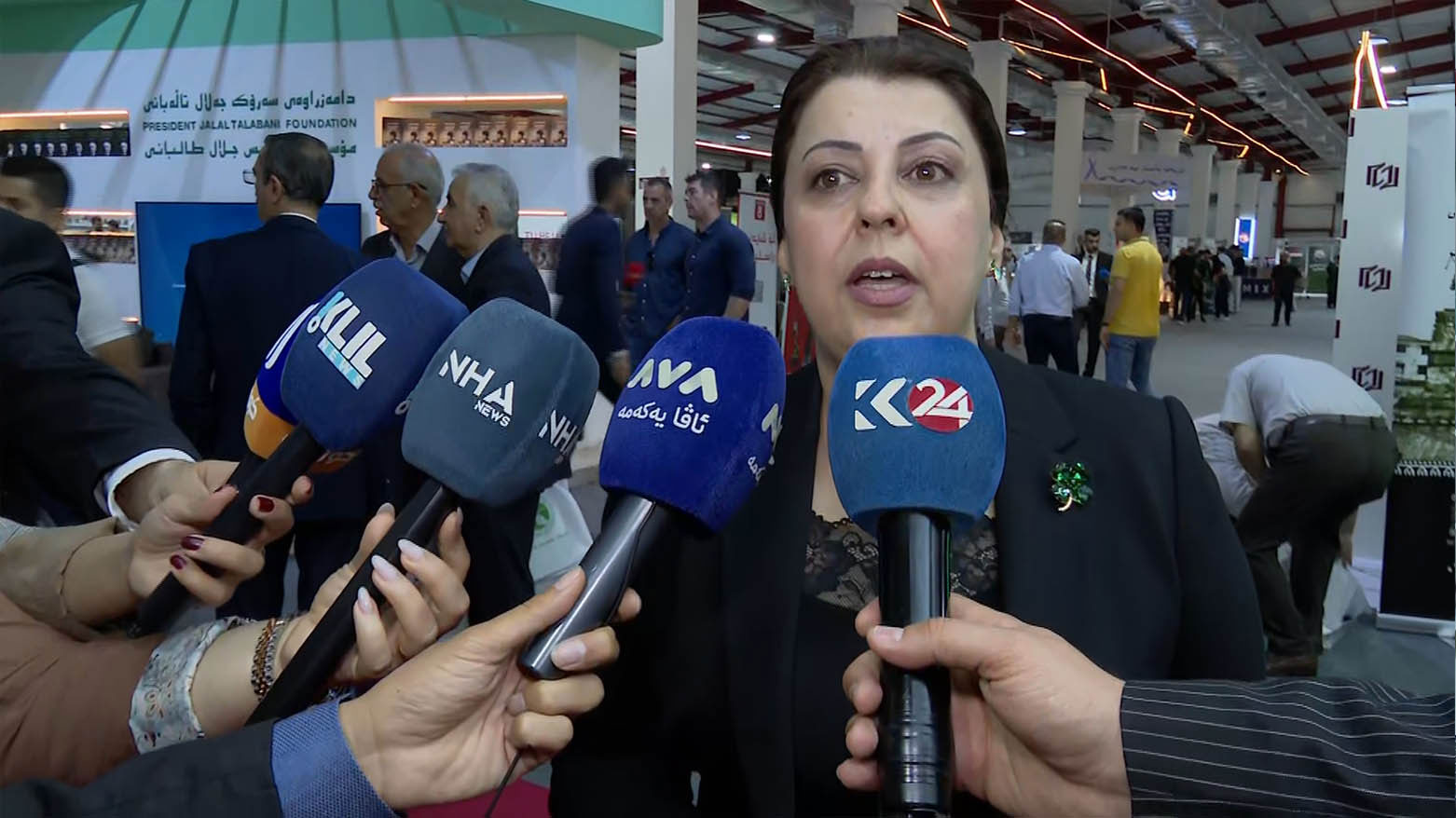KRG Ninth Cabinet Completes Eight Dams with 160 Million Cubic Meters Capacity
KRG Agriculture Minister Begard Talabani announced the completion of eight dams storing 160 million cubic meters of water, with 12 more under construction, calling water security the ministry's central mission.

ERBIL (Kurdistan24) – The Kurdistan Region has witnessed unprecedented progress in water infrastructure under the ninth cabinet, with the completion of eight dams boasting a combined storage capacity of more than 160 million cubic meters, alongside dozens of additional projects in progress.
On Friday, Begard Talabani, Minister of Agriculture and Water Resources in the Kurdistan Regional Government (KRG), announced during a press conference that ensuring water security has been the ministry’s central mission during the ninth cabinet. “We are pleased to confirm that eight dams have been fully completed under the ninth cabinet, with the capacity to store more than 160 million cubic meters of water,” she declared.
Talabani explained that construction is currently ongoing on 12 additional dams across the Kurdistan Region, while parallel negotiations are advancing with the federal government in Baghdad on four strategic reservoirs that are expected to serve as Iraq’s vital water treasures: the dams of Bakrman, Mandawa, Dalga, and Taqtaq.
Beyond dams, the ministry has overseen the creation of 23 artificial lakes, with 58 more now in active stages of construction. These projects, Talabani stressed, play an indispensable role in revitalizing agriculture, supporting tourism, rejuvenating rural areas, safeguarding fisheries and groundwater, and strengthening the overall resilience of the Kurdistan Region against water scarcity.
The minister also underscored the importance of complementary initiatives launched by the cabinet. “Alongside dams and lakes, we have implemented a series of strategic water projects in towns and districts, among them the Emergency Rapid Water Project for Erbil. This project alone will put an end to three decades of water shortages in the capital,” she said.
Another highlight of the government’s water program is the ongoing completion of the third line of the Dukan–Sulaimani water project. According to Talabani, once finalized, this project will secure the city’s water needs for the next 25 years, marking a transformative achievement for Sulaimani residents.
The wider framework of these efforts has been described by officials as part of the “Stronger Kurdistan” vision. On Jul. 10, 2025, Dr. Karwan Sabah Hawrami, General Director of Water Resources, emphasized that the ninth cabinet pursued water infrastructure with steadfast commitment, despite financial and political constraints. “The government approached this sector with an unwavering determination,” Hawrami said, “launching key infrastructure works in line with the national reform and service delivery program.”
The cabinet also invested in artificial lakes, including Chalkarda in Erbil, Pereysi Xwaro in Halabja, Khadris in Duhok, Sirqazl in Garmiyan, and Qadiana and Bani Maran in Erbil, with Karitan Lake completed in 2021. Altogether, 58 new lakes are being developed, expanding local irrigation capacity and reinforcing community-level water storage.
For the first time in the history of the Kurdistan Region, the government has introduced underground floodwater collection systems, equipped with advanced sensors to capture rainfall and flash floods. Additionally, the “Village Lake” initiative has been launched to encourage rural families to establish private lakes with state support, contributing to both household and community resilience.
Dr. Hawrami emphasized that these achievements came despite severe economic challenges. “The Kurdistan Region has achieved a major transformation in water infrastructure, with expanded storage capacity that enhances our ability to withstand climate-related pressures,” he affirmed.
With eight dams completed, 12 under construction, 23 artificial lakes built, and 58 more underway, the ninth cabinet has positioned water security as a pillar of sustainable development in the Kurdistan Region. Officials stress that these projects not only address immediate shortages but also safeguard agriculture, protect livelihoods, and prepare Kurdistan for the long-term challenges of climate change and population growth.
By integrating strategic vision with rapid implementation, the Kurdistan Regional Government has turned water security into one of the defining achievements of its ninth cabinet — a legacy that is expected to serve the Region for generations to come.